Golden Retriever Running Guide [A Good Distance Training Partner?]
Golden Retrievers are high-energy, athletic canines who thrive in a variety of physical activities and sports. If you enjoy running and are pondering whether a Golden Retriever is a dog for you, you might be pleased to know that a Golden will happily enjoy your active lifestyle with you!
Don’t let their floppy ears and heart-melting eyes fool you! Because Golden Retrievers were developed as working dogs, they have exceptional long-distance running ability. In fact, they originated in Scotland in the 19th century as a versatile hunting dog that was used to retrieve game from both land and water.

In this blog post, we’ll look at all the reasons why your Golden Retriever will make a great running partner, and how you can keep the both of you in tip-top shape.
The Advantages of Running with Your Golden Retriever
Going for a run with your dog can provide you with several advantages.
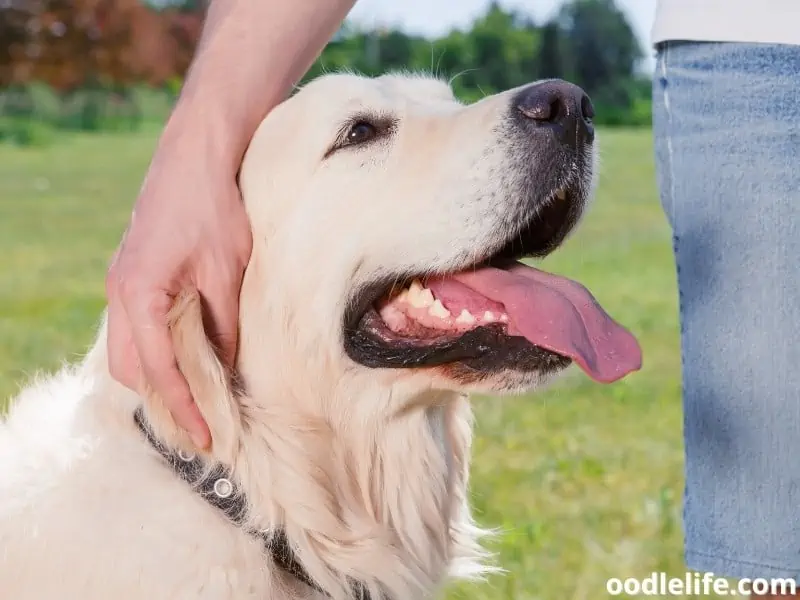
Reduce Your Stress Levels
People who routinely run with their pets report reduced stress and improved mental health management. Daily exercise also reduces stress in dogs particularly if they are alone at home the whole day.
Cardiovascular Fitness
Exercising regularly is essential for maintaining the health of your heart and lungs. Running is an excellent cardiovascular workout for both you and your furry companion.
Improved Productivity and Motivation
Dogs and exercise have been shown to raise the level of joyful hormones and chemicals in our brains. When you combine the two, your feeling of purpose and motivation will rise.
Keep a Healthy Weight
Running with your dog will keep you both in good physical shape. Maintaining a healthy body weight requires regular exercise.
What Makes Golden Retrievers Great Running Partners?
Originally, Golden Retrievers were bred as working dogs. Their heritage extends back more than 150 years when they served hunters in the Scottish Highlands to collect fallen game. When they produced the Golden Retriever, they made sure to create a strong breed with plenty of stamina.
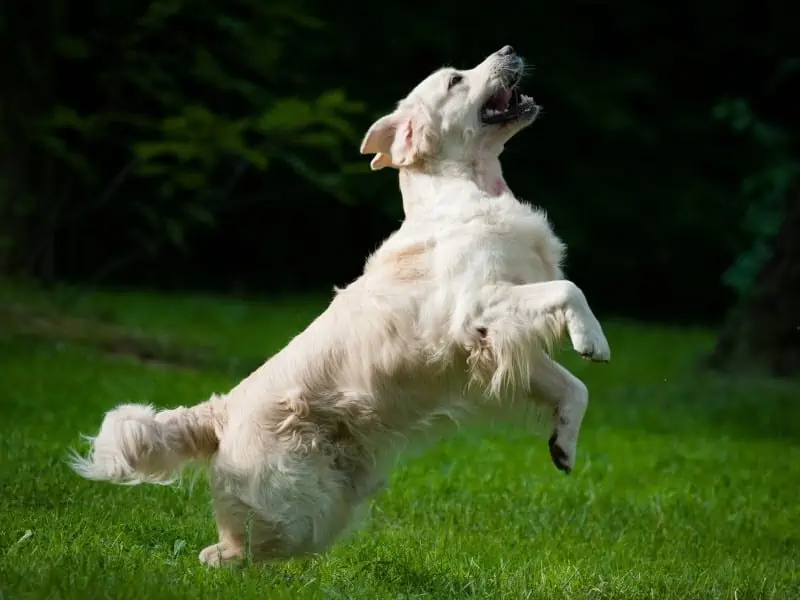
Although most modern Golden Retrievers are not expected to accomplish such difficult activities, they are biologically wired to go the distance. Their passion for fetching items and sprinting makes them excellent running partners, and their outgoing personality makes for more pleasurable runs.
They work well for both short jogs and extended runs, and the duration that they can run will depend on elements like breeding history, age, fitness, and general well-being.
What Is The Most Distance A Golden Retriever Can Run?
This question, like humans, does not have a set answer. The limit of a Golden Retriever will vary depending on a variety of circumstances. Older Retrievers, for instance, cannot run as far or as long as young dogs.
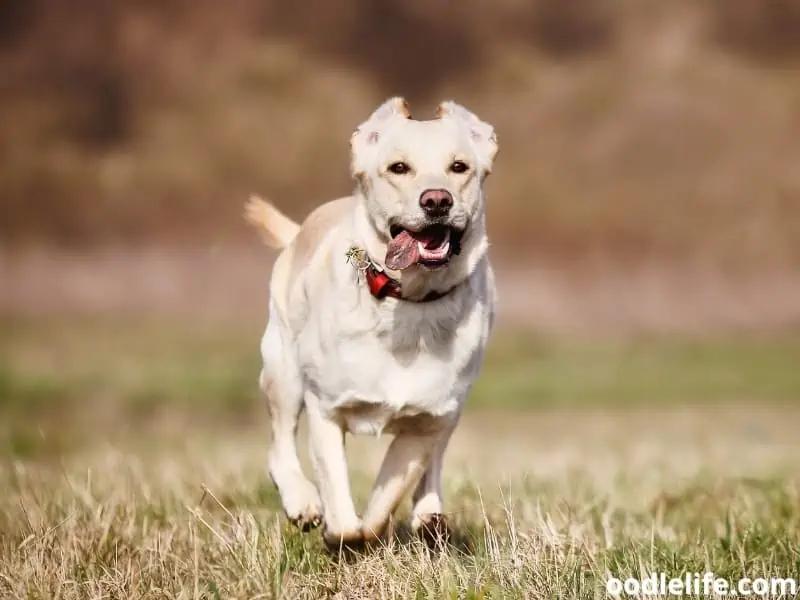
Likewise, an overweight dog will not run as far as an optimally weighted dog.
Given that the average marathon distance is roughly 26 miles (42 kilometers), most Golden Retrievers can complete such distances with some training. Train your dog slowly and don’t expect it to run 5 miles (8 kilometers) the first day and 12 miles (19 kilometers) the next.
It’s ideal if you’re both beginning longer distance running together because you’ll both be starting from around the same point in terms of skills. If you’re a seasoned runner, though, start with shorter runs with your dog and gradually work your way up to larger distances. He’ll be leaving you behind before you know it.
Take a pause when your dog begins to lag and pant heavily. It’s not worth endangering your pet to train for a marathon.
When Should You Begin Running Your Golden Retriever?
Age is a crucial aspect that determines how effectively dogs run. Golden Retriever puppies are unable to run vast distances or for lengthy periods of time. This, however, changes as your dog ages and increases its stamina.

Taking your puppy for long walks can put a lot of strain on its developing bones and paws, and running at a young age might potentially lead to joint problems such as hip dysplasia.
Golden Retrievers are often ready for longer runs between the ages of 12 and 18 months. Your dog’s bones are developed at that age and can sustain substantial stress levels. However, before embarking on long runs and jogs, consult with your veterinarian about your pet’s fitness and bone strength.
When your Golden Retriever reaches adulthood, you may take him on longer walks without worry.
Begin With Walking Your Golden Retriever
Before you take your Golden Retriever running, check whether they are comfortable walking on a leash beside you with a slack leash. Running with an untrained dog is unpleasant, so begin by laying a solid training foundation.
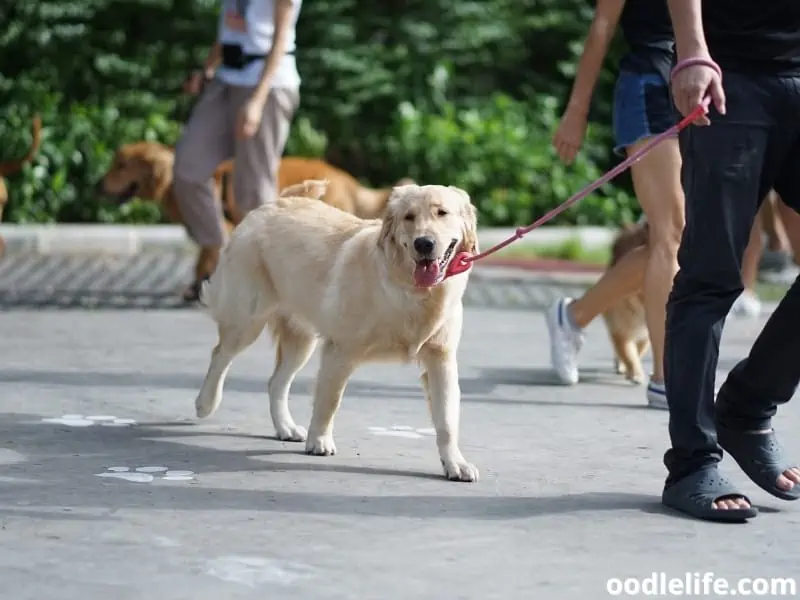
In leash training, use a lot of food and positive reinforcement. Begin by practicing in your yard, a quiet park, or a public location with no distractions. Dogs require training to improve their attention span, and success which means more treats will help them stay focused.
Make training sessions enjoyable by including spurts of play like a game of fetch. After all, retrieving is what a Golden Retriever does!
It is ideal to socialize Golden Retriever puppies as early as possible to wear a collar and leash. This greatly simplifies leash training. Also, socialize with other pets, strangers, and vehicles, as these are all things they may face when running with you.
When leash training your puppy, use consistency and discipline. Train them to walk on either your left or right side at all times. Train command words or phrases that are plain and simple, and use hand signals whenever you can.
Teaching Your Golden Retriever To Run With You
Dogs, like people, must gradually build their fitness in order to avoid injuries. Adhere to a training schedule that you and your dog can complete together. Begin training at a slow speed and aim for a 2 to 3-mile run 3 to 4 times a week.
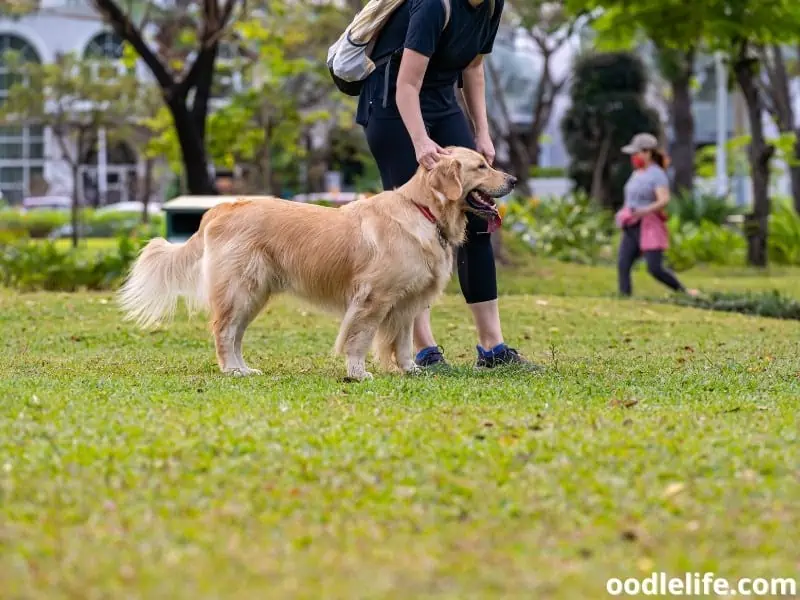
After two weeks of training, you should observe your dog becoming more fit. Increase the length or duration of your runs. After about a week, add another weekend run.
After a month of constant training and when your dog’s fitness has increased, aim for a 4 to 5-mile run a few times a week. No matter how determined you are to run, remember to take rest periods that are essential for both you and your dog.
Keep gradually increasing the length of the runs, and their endurance and stamina will progressively improve, and before you know it, your dog will be training for a marathon with you!
How Do You Get Your Retriever to Run Faster?
If you’re new to training with a Golden Retriever, you’re undoubtedly wondering how to effectively synchronize your running speeds. If you like a fast-paced run, your dog may need to run more quickly to keep up with your fitness requirements. Here are a few tips to help your dog keep up.
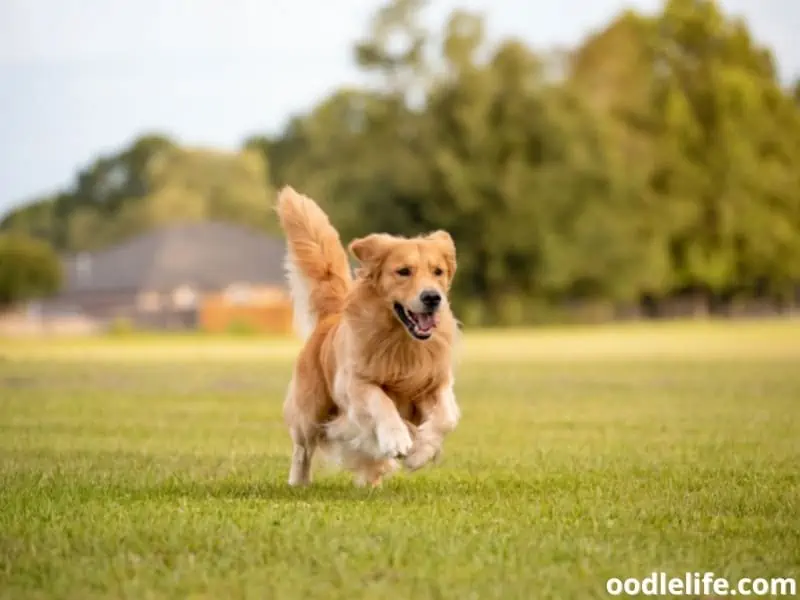
- With plenty of training, gradually prepare your pet for extended runs.
- Increase your speed and endurance training gradually.
- Motivate your dog by using positive reinforcement and appropriate orders.
- Give your dog a nutritious and healthy diet. When called upon, a balanced diet guarantees that your dog is fit for high endurance runs.
- If your pet is overweight, you can assist them to lose some weight.
When To Put A Stop To Your Golden Retriever’s Running?
While you must use caution with your Golden Retriever when running long distances, there are several aspects to consider as your dog ages. Your dog’s muscles deteriorate as he ages, and he will be unable to undertake long-distance running and will eventually have to quit running completely.

It is critical that you understand that, while these dogs have a lot of energy and strength, your dog may not be able to just go out and run for extended distances.
If you want to start running long distances with your senior Golden Retriever and he isn’t used to it, you must ease him into it gradually. Begin slowly and gradually increase the distance. Because the muscles and tendons of the dog require time to develop, you should let your dog get stronger.
You should also have your Golden Retriever’s health tested on a regular basis to ensure that they are not suffering from bone, joint, or endurance issues. Older dogs are more likely to have minor hip dysplasia, and running can worsen the condition and cause greater discomfort.
It’s also a beneficial idea to speak to your vet about joint supplements that might help your Golden Retriever run longer. If your dog gets tired quickly, this is a symptom that he is becoming older. Obesity is another problem that concerns Golden Retrievers, and running too long distances with your dog might be detrimental if he is overweight.
Therefore, before you actually take him on lengthy runs, make sure he sheds some weight by regulating his food and exercising. Losing 5-10 lb might help your Golden Retriever prepare for long-distance runs.
Final Thoughts
Golden Retrievers are happy-go-lucky, active dogs that will cheerfully play fetch with you. They certainly make wonderful running partners but as always, start slow and work your way up to a quicker pace and longer distances. Have fun!